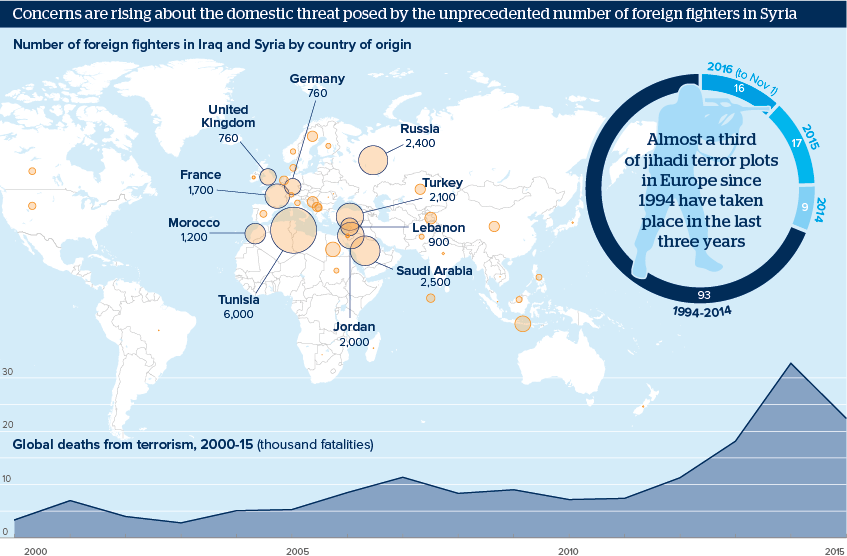Foreign fighters could be decades-long global threat
Returning foreign fighters are often at the heart of jihadi recruitment and terror operations
Source: Soufan Group, Perspectives on Terrorism, Global Terrorism Database
Outlook
The Syria conflict has attracted an unprecedented number of jihadi fighters from foreign countries: the most recent figure in early 2016, from the Office of the US Director of National Intelligence, estimated that more than 36,500 individuals from 100 countries had travelled to Syria.
Once back in their home countries, veteran jihadists have a social status they can exploit for recruitment purposes. Returning fighters from earlier conflicts, including Algeria, Afghanistan and Iraq, have become authority figures and recruiters for Islamic State (IS) in Europe, according to recent terrorism studies.
This 'generational' recruitment and skills transfer, coupled with the large numbers of foreign fighters, unabating conflicts and migrant marginalisation, means that the threat emanating from returnees could stretch into decades to come.
Impacts
- Protests in Tunisia against the return of foreign fighters may rise as anxiety mounts over the threat they pose.
- The focus on prisons in combatting radicalisation may increase as the effects of IS's message on criminals become better understood.
- Hardship and marginalisation could make refugees vulnerable to extremism.
- The self-radicalised 'lone-wolf' paradigm will shift as evidence emerges linking IS to most plots.
See also
- West will overlook Tunisia's transition troubles - Jul 11, 2017
- New type of attacks calls for UK strategy revision - Jun 30, 2017
- Iran is looking at a long-term terrorism problem - Jun 8, 2017
- Saudi internal security threats could multiply - Jan 27, 2017
- Global terror patterns open interception opportunities - Oct 28, 2016
- Sympathisers feed Islamic State threat to West - Nov 24, 2015
- More graphic analysis
